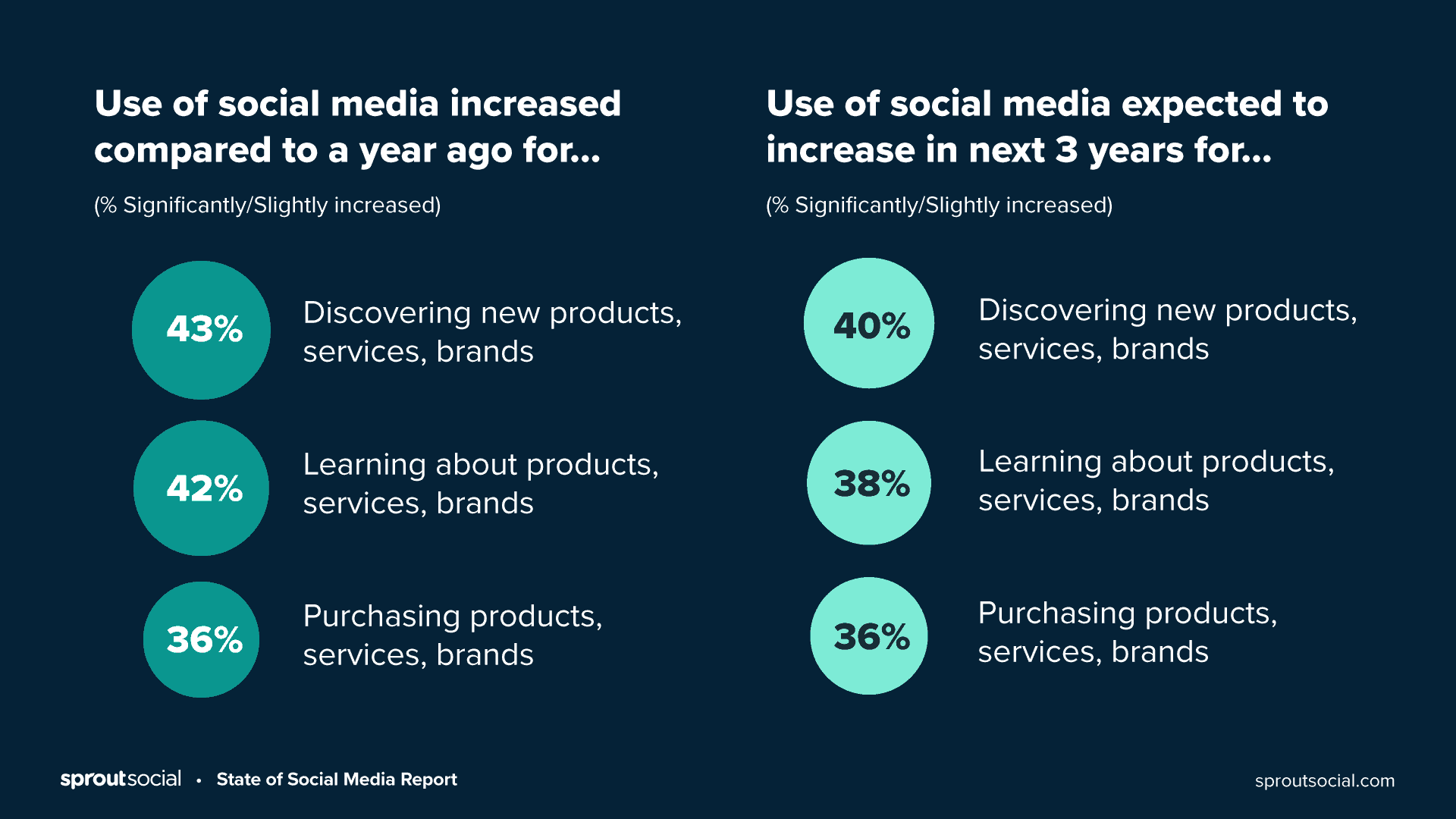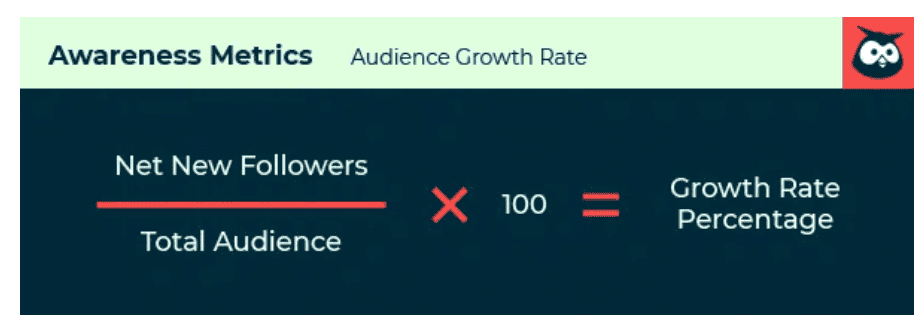With almost five billion people globally taking to Facebook, Instagram, TikTok, and the likes on a daily basis to express their views, share their lives, and, of course, do business, the extreme popularity of social media platforms continues.
But when it comes to using these tools to boost sales, increase brand awareness, and generally run a profitable company, one element is paramount: Top-notch social media project management.
Knowing how to structure your social media strategy, which trends to jump on, and how to measure the most important metrics related to your social media presence, is simply something that must not be neglected.
So, whether you run a large team of social media marketers or handle this area on your own, let’s dive right into this exciting topic.
Defining Social Media Project Management
Social media project management, or simply social media management, refers to the process of planning, conducting, and analyzing the social media activity and performance of a company.
As you might expect, this can be quite a complex and lengthy process, especially if you have a large social media presence on multiple sites.
The main aims of social media project management include assessing the success of a specific social media campaign, tracking progress over time, and informing your future social media strategy and campaigns based on verifiable and accurate data.
To achieve all this, it’s vital that you run a skilled team who puts communication, collaboration, and task management at the top of its priorities. For those new to managing complex social media workflows, a structured project management course can provide the foundational skills needed to plan, execute, and monitor campaigns more effectively.
Your social media team should also be efficient at handling cross-communication with other departments of your company, namely marketing and sales, but possibly others such as logistics, IT, and human resources.
More and more companies, in fact, are taking to social media to engage with their audience in less traditional ways. How about, for example, adding a social media shout-out to a new employee as part of your new hire onboarding checklist?
This can help “humanize” your brand, give your followers an interesting snapshot of what’s happening at your company, and, of course, enable your new recruit to feel welcome and valued.
Social Media Project Management: Three Important Benefits

Image sourced from sproutsocial.com
Social media project management done well can generate lots of incredible benefits. Below we will discuss three of the main ones:
Better Planning of Social Media Campaigns
Just as top-notch HR management can lead to greater performance of your staff, an excellent social media management strategy can help you dramatically improve the performance of your social media campaigns. Achieving this, however, requires a fair bit of groundwork — especially if you’re managing a portfolio of multiple projects.
Consider starting by creating a so-called “audience persona”. Similar to a “buyer persona”, this is a fictional character that encapsulates all the attributes your ideal social media follower should display.
Then, move on to the goals that you aim to attain through your social media campaign. Using the SMART technique can be useful to this effect. Make sure that your goals are specific, measurable, attainable, relevant, and time-bound, and you will instantly gain a lot more clarity over your social media campaign as a whole. Plus, consider using paid or free project management software for effective campaign planning, and collaboration among team members to ensure that the goals are met efficiently.
Follow on by allocating the required budget for this campaign, as well as assigning the right members of the team to all the different parts of the campaign. Consider utilizing team management software to streamline communication, enhance collaboration, and optimize overall project efficiency. From research to content production, from distribution to analysis, you should ensure that only the best and most expert people are allocated to each task.
Consistent and Accurate Content Monitoring
With the right tools in place, you can keep tracking your social media campaigns and overall performance over time. This can be an invaluable way to help you uncover patterns of behavior, potential issues, and unexpected successes to invest in.
After all, you’re probably already using automated tools such as enterprise payroll solutions, so why shouldn’t you do the same when it comes to monitoring your social media performance?
Social media management tools should be a staple of your social media project management strategy. Not only will they save you a ton of time thanks to automation, but they will also deliver accurate, trustworthy, and up-to-date results each time.
Within your social media project management tool, you can allocate specific tasks and responsibilities to specific people, in order to avoid chaos and overwhelm and allow everyone to work as efficiently and productively as possible.
While engaging with your audience and managing your social media presence, it’s important to prioritize content moderation to ensure a safe and secure environment. Content moderation involves monitoring and reviewing user-generated content to prevent the spread of harmful, inappropriate, or spammy content on your social media platforms.

Free to use image sourced from Pexels
Improved Competitiveness
Lastly, another major benefit of a well-structured social media project management strategy is the possibility to dramatically increase your competitiveness by tapping into your audience’s sense of trust and loyalty. It’s easy to understand why.
Just as you would, for example, buy .ai domains if your brand was based in Anguilla in order to boost your local presence over foreign competitors, having a strong social media strategy that targets a local, relevant audience can help you overtake your rivals.
Moreover, with a solid social media project management strategy, you will also be able to collect huge amounts of data which, in turn, will give you invaluable insights into your overall industry, its players, and its challenges.
Armed with these findings, you can keep building stronger and more successful social media campaigns that can help your business flourish.
Dos and Don’ts: How to Nail Your Social Media Project Management Strategy
Are you curious to find out what to do—and what not to do—in order to make your social media project management strategy an utter success?
Do: Establish a Clear Strategy
It should probably be apparent by now, but step one in your social media project management journey is establishing a clear strategy. If you think about your social media presence as a business, this strategy is essentially your business plan.
So, try to go about creating this strategy as you would a business plan. With, of course, a few necessary tweaks. You could, for example, begin by listing the social media platforms that you think are best suited for your business (basically, those where your “audience persona” is more likely to be found).
Then, consider the type of content that you will be creating for those specific platforms, as well as the frequency at which you will be posting. Further to this, you’ll want to establish the goals of your social media project management strategy.
As we mentioned earlier, using the SMART approach to set your goals can be tremendously helpful.
For example, instead of simply saying that you want to grow your social media presence over time, a SMART approach would make this goal look something like: “Growing my Instagram presence by 10% over one quarter.” 
Free to use image sourced from Pexels
Don’t: Try to Emulate Others
Picture this. Your engagement rates are going down, you’re losing Instagram followers at a rapid pace, and your content production is lagging. Should you try and follow the lead of some of your more successful competitors?
While many businesses—especially those who are just starting out on social media—would be tempted to do so, it’s important to think twice before emulating your rivals.
Of course, you are welcome to take a look at what some of them are doing in terms of content, posting frequency, and audience engagement tactics, and see if any of that resonates and makes sense to your business.
However, trying to copy exactly what others are doing goes against brand authenticity and uniqueness, both crucial factors that you will need to display if you want social media to really work for your brand.
Do: Select the Right Tools
We said it earlier and we’ll say it again, implementing the right tools can be an actual life-saver when it comes to structuring, monitoring, and analyzing your social media performance.
Even if your company has a small social media footprint, it’s simply too complex and time-consuming to handle all these tasks manually.
Another good idea is to use performance review software to assess your social media marketers and help them improve. Utilizing performance review software not only streamlines the assessment process for social media marketers but also unlocks the benefits of appraisals by providing structured feedback, identifying strengths and weaknesses, and fostering continuous improvement. These insights empower marketers to refine their strategies, enhance their skills, and drive better results for the company’s social media presence.
So, consider equipping your social media project management team with these solutions:
- Monitoring tools
- Content creation and scheduling tools
- Messaging tools
- Creative tools
Implementing project management software like Nifty can be an actual life-saver when it comes to structuring, monitoring, and analyzing your social media performance. Even if your company has a small social media footprint, it’s simply too complex and time-consuming to handle all these tasks manually.
You may wish to look into the best project management software available on the market in 2023 to find the best fit for your business.

Free to use image sourced from Pexels
Don’t: Ignore Negative Comments
Even the most loved and longest-established company will inevitably come across some negative feedback, at some point, and social media is one of the most obvious channels by which people will choose to express their anger, disappointment, and frustration.
If this happens to you, and you feel the urge to ignore (or, worse, delete) any negative comments from your public social media pages, you should resist and do the opposite.
Address each comment or message in a calm, polite, and professional way, and make a point of investigating those claims.
Want to go the extra mile? Consider asking the person who leaves a negative review for their support in improving how your brand can serve them in the future.
This will put you in a much better position when it comes to regaining their trust, as well as helping them feel valued and important, and potentially solving an issue that might, in the long run, affect other people, too.
Do: Create and Publish Valuable Content Regularly
With social media, the quality of what you post usually wins over the mere quantity of your posts, but the latter remains an important aspect, too. After all, you’re on social media to create social connections, and these connections can only exist if you nurture them over time.
So, go back to one of the amazing automated tools that we spoke about earlier, and make sure that you put together a comprehensive and enticing content calendar packed with great-quality content that’s scheduled to be published at just the right frequency for your brand.
In some cases, a couple of times a week may suffice, especially if you’re a service-oriented company. Ecommerce brands and online retailers, on the other hand, may benefit from posting more frequently to keep their audience up-to-speed with their business and products.

Image sourced from sproutsocial.com
Don’t: Settle for Being “Just Good”
If you’ve been doing social media management for a while and noticed “ok” results, you may think you can settle for them and just keep doing what you’re doing. After all, it’s clearly working pretty well.
This mentality, however, can quickly backfire. Social media is a fickle, fast-changing environment that demands constant attention, assessment, and potential change.
Therefore, try to stay ahead of the curve—and of your competitors—by continually coming up with ways to improve your social media presence and performance.
For example, consider going the extra mile by incorporating hyper-personalization into your social media, which can help your audience feel truly seen, heard, and valued—and, ultimately, entices them to come back for more.
Do: Keep Assessing, Tracking, and Analyzing Your Performance
To ensure that your social media campaigns keep performing well, it’s vital that you assess, track, and analyze their performance on a regular basis. To this effect, you should consider selecting a few metrics and using them as a benchmark for all future analyses.
For example, you may want to focus on pillars such as engagement rates, reach, new followers, shares, and even influencers giving your brand a shout-out. And remember, there’s always room for improvement.
That’s why social media testing is a crucial element that your social media project management strategy should feature. By trying out different content types, posting days, and engagement tactics, you will be able to work out what works best, and keep using that to build your ongoing strategy.
Don’t: Expect Immediate Success
Just as with everything else in marketing, social media won’t give you instant, overnight success. It takes time, patience, and a lot of fine-tuning to ensure that your social media management strategy truly hits the spot.
A good way to assess your results is by looking at your performance either month after month or quarter after quarter. Only by doing so will you have gained enough data about your audience—as well as learned the inner workings of social media itself—to establish whether or not what you’re doing is paying off.

Image sourced from hootsuite.com
Get Your Social Media Project Management Right and Reap the Rewards
There’s no way around it, to ensure that your social media presence is a success, you need a solid social media project management strategy, regardless of whether you insource or outsource your social media team.
A great social media management strategy involves a range of elements, as we’ve seen in this article, and can’t overlook the implementation of a series of automation tools to help you create, schedule, post, track, and analyze your content.
With the tips discussed in our guide, you’ll be able to nail your social media strategy and keep growing your brand online.

